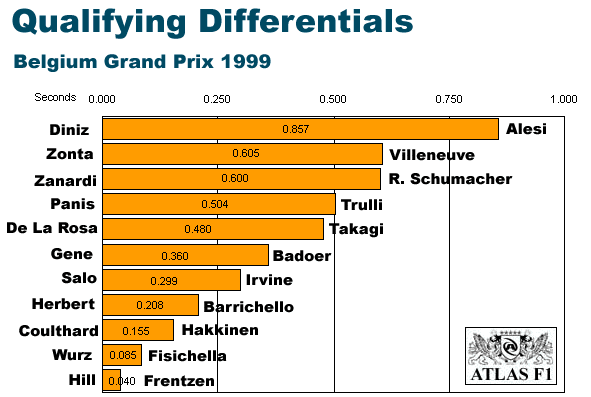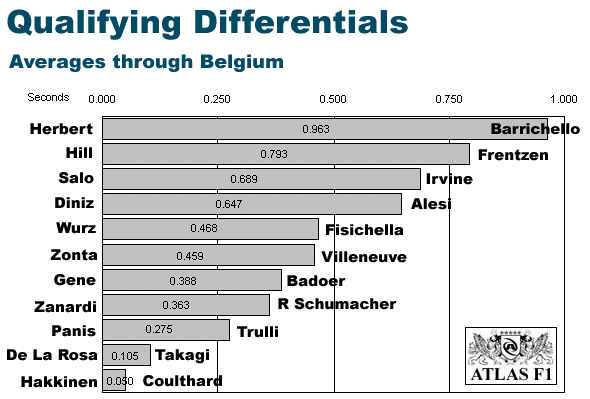 |
Qualifying Differentials |
| Marcel Borsboom, Netherlands | |
|
Atlas F1 is going to keep an eye on the battle between team mates throughout the season by race and overall averages (again). The measurement is simple. We compare the intra-team difference in seconds on Saturday. Some may say compensation must be given in the favouritism between the number one and two seats within the team. We, on the other hand, do not grant that pardon. For better or worse, our analyses will be on the perfect world of egalitarian status in intra-team rivalry. With twelve qualifying sessions completed for 1999, the differentials are on a roll. Let's see which drivers deserve bragging rights. Belgium Notables
The average gap between teammates in Belgium was the smallest gap we've had all year - 0.381 secs. This, compared to Hungary's average gap of half a second; Germany's 0.588sec; 0.511sec in Austria; Britain's 0.463 seconds; France's 2.514sec; Canada's 0.588sec; Spain's 0.471sec; 0.671sec in Monaco; 0.601sec in San Marino; 0.446sec in Brazil; and 0.922sec in Australia. The overall average gap for the first eleven rounds of 1999 stands on 0.585.
|


|
|
| Marcel Borsboom | © 1999 Atlas Formula One Journal. |
| Send comments to: borsboom@atlasf1.com | Terms & Conditions |